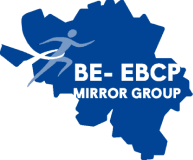Project
CHIP-AML22
Improved diagnostics and survival for all children with Acute Myeloid Leukemia treated within the NOPHO-DB- SHIP consortium; a cross-European collaboration
1 November 2023 - 31 October 2025
CHIP-AML22 aims CHIP-AML22 aims on improving treatment and survival for Paediatric Myeloid Leukaemia (AML) patients through genetic profiling of leukemic cells, introducing tailored treatments and implementing and evaluating advanced treatment-response evaluations.
Project Description
The treatment of Paediatric Acute Myeloid Leukaemia (AML) requires careful consideration of the balance between its effectiveness and the potential for severe toxicity. This toxicity can result in various complications, including mortality. The survival rates and genetic diagnosis play a critical role in determining the most appropriate treatment for patients.
The previous NOPHO-DBH AML12 protocol demonstrated the importance of advanced diagnostics and evaluations in enhancing treatment outcomes.
However, access to state-of-the-arts treatments, such as therapies that target the genetic cause of cancer, is not uniformly accessible in European countries. In response to the issue, the CHIP-AML22 consortium aims to prioritize three key areas.
- Genetic profiling of leukemic cells to identify subgroups of patients with prognostic indicators, which can help improve risk-group stratification across the consortium.
- Introducing tailored treatments based on gene activity information garnered from next-generation sequencing and transcriptome analysis of leukemic cells.
- Implementing and evaluating advanced treatment-response evaluations to further improve treatment outcomes.
An example of treatment-response evaluation is the utilization of minimal residual disease (MDR) measurements. These measurements assess the presence of remaining leukemic cells at specific time points throughout and after treatment. The previous NOPHO-DBH AML12 protocol successfully integrated MRD measurements into the evaluation process, which greatly contributed to the study’s achievements. To enhance the treatments outcomes, the consortium can further implement and evaluate MRD measurements using flow cytometry and molecular/genetic techniques.
By implementing these areas of focus, the project strives to enhance outcomes for all children undergoing AML treatment within the NOPHO-DB-SHIP consortium. The project’s findings hold significant potential for providing valuable insights applicable to a wider range of patients, including adults with AML.
Funding programme & Type of action
Funding programme: EU4 Health Programme (EU4H)
Type of action: Project Grant
Grant agreement number: 101079988
Duration
2 years
Consortium
Number of countries involved: 13
Number of participants: 14
Belgian partners
Universiteit Gent (UGent)
